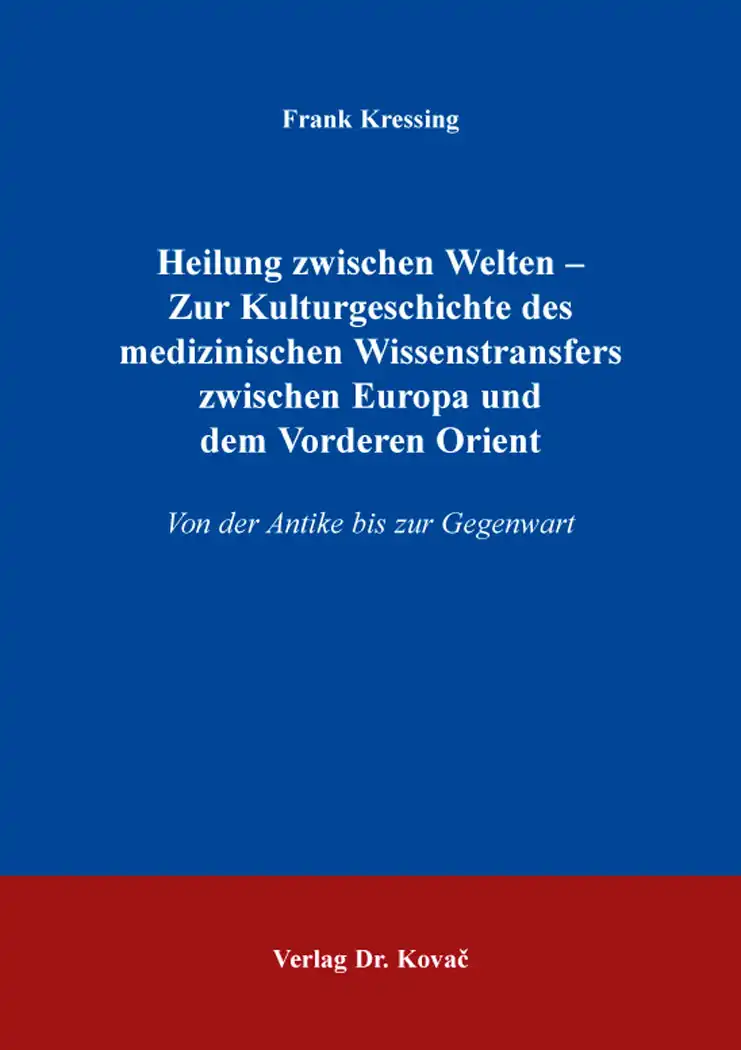Frank KressingHeilung zwischen Welten – Zur Kulturgeschichte des medizinischen Wissenstransfers zwischen Europa und dem Vorderen Orient
Von der Antike bis zur Gegenwart
Schriften zur Ideen- und Wissenschaftsgeschichte, volume 25
Hamburg 2024, 316 pages
ISBN 978-3-339-13960-3 (print)
ISBN 978-3-339-13961-0 (eBook)
About this book deutschenglish
This monograph focusses on multiple transfer of medical knowledge, practices and attitudes between East and West, Muslim, Christian and pagan cultures of Eurasia and northern Africa.
Since classical antique times (5th century BC), an empirical-based medicine devoted to the close observation of nature had been established in the Greek-speaking Eastern Mediterranean. Starting in the 7th century, such medical theories and insights in the tradition of Hippocrates (5th/4th c. BC) and Galenus (2nd c. AD) were transferred to the emerging Muslim world. Due to the dominant role of Arabic in the early caliphates, this kind of medicine came to be called Arabic medicine, although being largely shaped by Syriac, Jewish, Iranian and Indian doctors and thinkers. Therefore, we should rather speak of Graeco-Islamic instead of Arabic Medicine.
Starting in the 11th century, important Arabic medical texts were translated into Latin. This happened in places like Toledo (Spain) or Salerno (Italy), thereby transferring innovative medical knowledge to Western Europe. From the times of Renaissance onward, however, Islamic and Western medical traditions were perceived as contradicting and being opposed to each other – a view that increased with the new medical inventions and experimental methods of the 16th century.
When, in the 18th century, reform movements of the Middle East (e.g. in Egypt and Persia) intended to modernize their medical systems by adopting Western medical thought and methods, European medicine was increasingly exported to the Islamic World, thereby also transmitting knowledge and skills that had originally emerged from Graeco-Islamici Medicine.
In summary, the study provides an historical account of mutual and multiple medical transfer dating back to pre-Hellenistic Eurasia and a critical examination of orientalism (cf. Said 1978), postcolonial stereotypes, alleged Western superiority and a culture of patriotic memory in the medical field.
